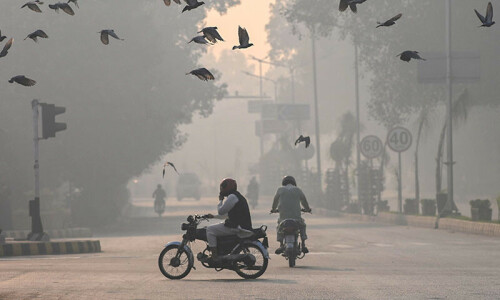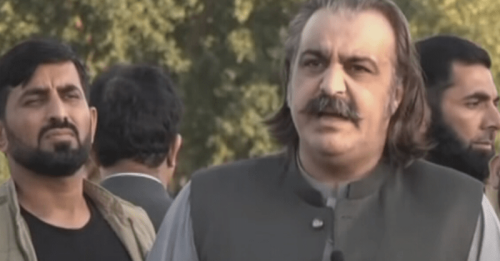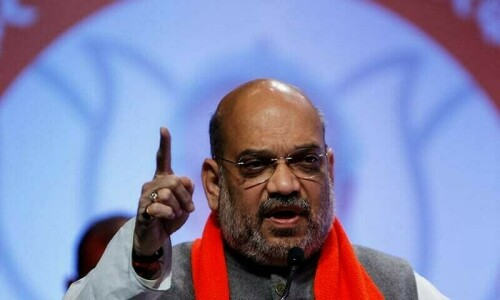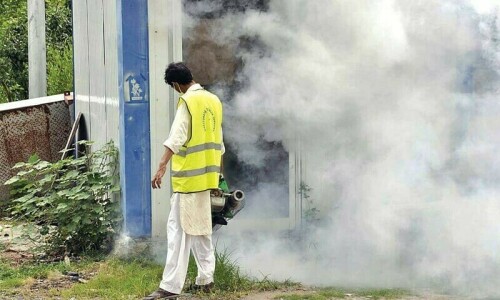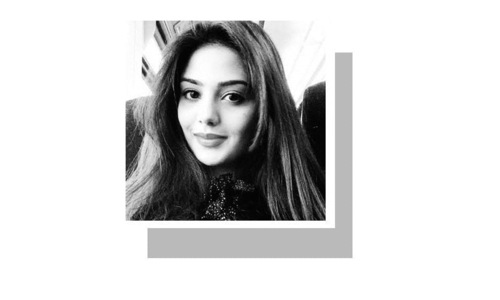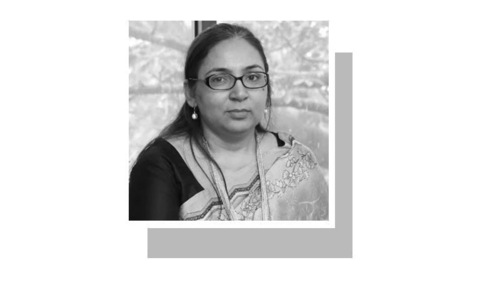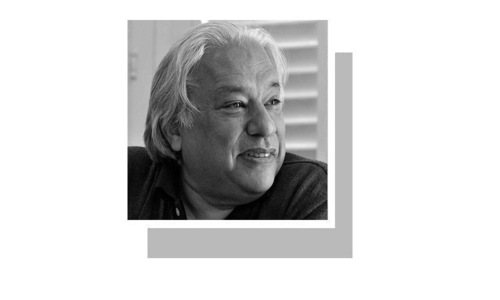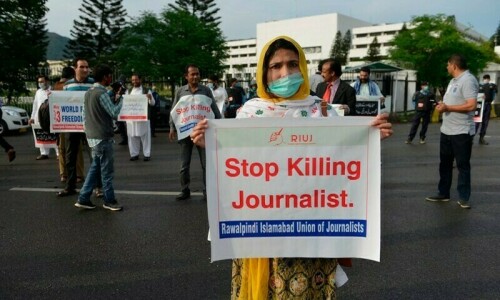 |
| People dancing at a gig 'Centrifuge' organised by the Mavens in Islamabad, July, 2012. — Photo by Shameen Khan/Dawn.com |
Electronic dance music (EDM) has recently gained a great deal of popularity all around the world in line with the emergence of numerous labels and DJs. Although the genre has been spanning across since the late 1980s as the key genre of night clubs; it has never accomplished such vogue.
The percussive music genres largely branch from production methods of disco, techno, house and trance. However, in recent times there have been various sub-divisions and adaptations of club music which are at rift with mainstream music.
Every DJ has a different skill set and a unique preference of what the crowd needs and what they can deliver. Electronic music was originally created for night clubs, parties and raves, but due to its rapidly increasing popularity, it has made its way into many categories of mainstream music.
 |
| People dancing at a gig 'Centrifuge' organised by the Mavens in Islamabad, July, 2012. — Photo by Shameen Khan/Dawn.com |
Pakistan has not been left behind when it comes to the growing recognition of electronic dance music. At present there are many amateur and professional DJs across the country and thousands waiting for more gigs.
 |
| Jimmy Van M performing live in Karachi. — Courtesy Photo |
However, at the other end of the spectrum, there are those who are yet to even recognise the talents and skills a DJ acquires. For them a DJ is someone who plays music at a wedding ceremony. What sound engineering involves and the value of audio-skills are beyond their interpretation.
Karachi, in comparison to other cities in Pakistan, has been witness to a paramount of discotheques and night life. However, recently Lahore and Islamabad have stepped up their game with various event management companies hosting club nights and parties, attracting many people from surrounding areas such as Multan and Faisalabad to come to the cities for eventful nights out with friends.
Roughly 10 years ago, Karachi hosted some of the best parties with very small intervals. Their frequency has slumped due to a large amount of substance abusers and security threats that come from the rising culture of private guards and weapon possession.
 |
| Nuit de Electronic in Lahore. — Courtesy Photo |
“The older days were awesome! There were few people who were really passionate about this form of art and entertainment, it was difficult but amazing nonetheless as it was so unique for Pakistan,”
says Faisal Baig, one of the most famed DJs in the country.
 |
| Faisal Baig performing at a gig in Karachi. — Courtesy Photo |
“The scene did not die out; it was affected by the situation in the country. The Karachi scene fizzled out as the city became more and more dangerous. Lahore has a good scene now with new people diving in, technology has made it possible for more people to try spinning and producing but mostly they keep it at a hobby level. EDM artists cannot sustain themselves on local gigs alone, and that’s why the professional scene just does not pick up, ” he claims.
Many struggling musicians of Pakistan are already trying to overcome this ordeal including artists involved in other genres of music. In comparison to the mainstream music, the audiences for electronic music are still diminutive in number, but there are still many people who are trying to revive the community and its events in the country.
 |
| Anthony Pappa performing live at Alliance française de Karachi. — Photo by Humayun Memon |
Akin to this, a forum under the name of Pakistan DJ network (PDN) hosted an event for various artists to showcase their skills.
 |
| Hira Tareen playing live at PDN Karachi meet up. — Photo by Humza Syed |
The event started with a meeting of PDNs members, hosted by Hira Tareen and Ali Safina (the founding members of PDN) that held discussions about goals, plans and challenges faced by DJs in Pakistan along with narrowing down of solutions to overcome obstacles and reach their desired apex.
“We are taking small steps to come together and collaborate on various projects. The initial goals have already been achieved, the next goals are to possibly have a Lahore meet up and perform at more live gigs collectively,”
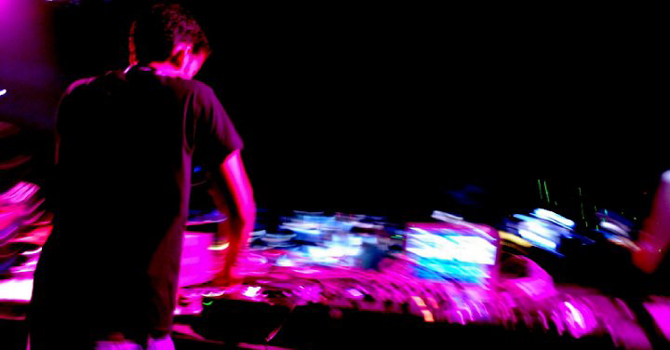 |
| Bilal Brohi performing live at 'In White Rooms' in Lahore. — Photo by Shameen Khan/Dawn.com |
said Tareen.
“Due to the current political situation and limitations in the country and not being able to perform live as much as we'd like, another thing we hope to do is to use alternatives to still get our talent and music out there. As an organization when we put together events ourselves, we are committed to providing our talent with a drug free and safe environment where the music is at the forefront and the listeners who are there come with an open mind to explore new genres of electronic music.”
The meet-up then opened up to “DJs Play for DJs” which incorporated performances consisting of 30 minute sets showcasing their skills and talents in their particular genres.
In Lahore, similar efforts are being made with event management teams hosting large music festivals and inviting foreign artists like Sander Klienenberg to pump it up.
 |
| Anthony Pappa performing live at Alliance française de Karachi. — Photo by Humayun Memon |
“Initially it was tough. Recession had hit, the market was saturated and I didn't have much help. It took me quite a while to figure it out. But now, with the grace of God, the feedback is phenomenal,” Fahad Rehman, the art director at a Lahore based event management company FCCM, said.
“Hiring foreign artists have proven to be a very lucrative and viable business model. People are willing to pay top dollar for quality entertainment,”
he added.
This trend initially was accustomed to Karachi and paled for some time but quickly gained pace with major gigs of grand artists like Anthony Pappa and Jimmy Van M.
 |
| DJ's pose for a photograph at the Nuit de Electronica Festival in Lahore. (L-R) Fuzzy Nocturnal, Project Fushion, Getafix, Faisal Baig, Salim Ahmed, Bilal Brohi and Ali Reza. — Courtesy Photo |
Though there are potential problems arising from such trends, Baig highlighted saying, “As great as it is for international artists to come here, I think it takes away a lot from the local talent. Promoters just don’t see the locals as crowd pullers so it becomes a loop and the local artist doesn’t rise.”
He further added that, “Commendable that they get international artists but it has to be balanced better. In the earlier days I'd play a minimum of seven hours a night and really be able to take the crowd along; now you have to fight for a two hour slot.”
 |
| Anthony Pappa and Bilal Brohi performing live at Alliance française de Karachi.— Photo by Shameen Khan/Dawn.com |
Music festivals around the globe take place on such a grand scale with a massive audience adding up to 30,000 people and more. Perhaps Pakistan will witness its share too, and surely they too are in hope for such escapades, especially with the current situation in the country.
It’s always healthy to have a lot going on around you for people to vent and channel their energy in a frivolous way. Possibly, we will too witness a time where there is awareness and appreciation for this form of art and amongst numerous hobbyists, the true talents will rise.


